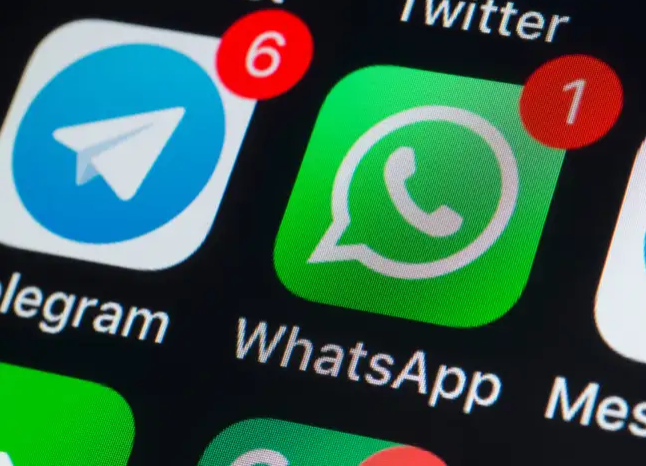Russia Restricts WhatsApp and Telegram Voice Calls to Boost Digital Sovereignty
In a significant escalation of its efforts to control digital communication, Russia has partially restricted voice calls on popular messaging apps WhatsApp and Telegram, citing non-compliance with domestic laws regarding fraud, terrorism, and law enforcement cooperation. This move reflects the Kremlin’s broader strategy to establish digital sovereignty and steer users toward a state-backed messenger.

What Has Changed and Why
- Partial Restriction of Voice Calls: Since August 11, 2025, Roskomnadzor, the Russian communications regulator, has blocked voice call functionality on WhatsApp and Telegram. Text messaging remains available.
- Alleged Security Threats: Authorities accuse both platforms of enabling fraud, scams, extortion, and even recruitment for sabotage or terrorism, claiming they ignored repeated law enforcement requests to cooperate.
- Conditional Restoration: Roskomnadzor states that voice access will be reinstated once the platforms fully comply with Russian laws specifically by opening legal entities in Russia and cooperating with authorities.
Platform Responses:
- WhatsApp (Meta) reaffirmed its commitment to end-to-end encryption, stating the restriction stems from Russia’s attempts to weaken secure communication for over 100 million users.
- Telegram, founded by Russian expatriate Pavel Durov, emphasized its efforts to remove harmful content. Meanwhile, Telegram is taking steps to comply by establishing a Russian legal entity.
Why Russia Is Taking This Step: Context & Motives
1. Digital Sovereignty & State-Controlled Alternatives
Vladimir Putin has signed legislation mandating the creation of a state-backed messaging app, called MAX, aimed at replacing foreign platforms and centralizing digital services. MAX, developed by Kremlin-aligned VK, already boasts over 2 million users.
2. Reduction of Foreign Tech Reliance
Legislators are targeting WhatsApp for its ownership by Meta, designated an extremist organization in Russia, suggesting it may soon be added to a list of restricted software.
3. Push for Legal Compliance
According to Dmitry Gorelkin, deputy head of the Duma’s Information Policy Committee, WhatsApp must prepare to leave Russia unless it complies fully. Telegram may remain if it adheres to local law, as it’s already working on compliance measures.
4. Surveillance Framework Expansion
Critics warn that MAX enables deep surveillance, collecting messages, location, financial activity, and more, and may entrap users in a “digital gulag.”
Broader Media Control Landscape
This crackdown aligns with Russia’s wider campaign to assert internet control:
- Blocking platforms like Facebook, Instagram, Twitter, and enforcing strict VPN bans.
- Restricting access to Telegram in certain regions like Dagestan and Chechnya in 2025, citing security concerns.
- Enacting surveillance laws requiring messaging services and telecom providers to store vast amounts of user data accessible by security services.
What This Means for Russian Users
- Voice Calls Disabled: WhatsApp and Telegram calls barely function, disrupting personal and business conversations.
- Potential Full Ban: Signals point toward an eventual ban, especially for WhatsApp. Telegram’s cooperation might preserve its partial availability.
- Migration to MAX: With state institutions required to use MAX, everyday users may be nudged or compelled to switch.
1. Impact on Russian Citizens
- Communication Disruption: Millions rely on these apps for daily messaging, voice/video calls, and group discussions. Losing access means shifting to local apps like VK Messenger or ICQ.
- Privacy Concerns: Many will worry that domestic apps might not offer the same encryption or privacy protections, increasing fears of government surveillance.
- Information Flow: Restrictions could reduce access to independent news and limit the sharing of real-time updates during political events.
2. Economic Impact
- Small Businesses & Freelancers: Many use WhatsApp and Telegram for customer communication, marketing, and payments. Restrictions could disrupt operations and force costly platform transitions.
- Tech Startups: Could face difficulties if they depend on global messaging platforms for networking or international clients.
3. Political & Social Impact
- Freedom of Speech: Many will view this as a step toward tighter control over online conversations, potentially fueling dissatisfaction among younger, tech-savvy Russians.
- Protests & Opposition: Restrictions could become a rallying point for opposition movements.
4. International Impact
- Geopolitical Tensions: Countries and human rights organizations may condemn the move, calling it an attack on free expression.
- Tech Industry Reaction: Meta (owner of WhatsApp) and Telegram may challenge restrictions through legal or diplomatic channels.
5. Likely Citizen Response
- VPN Surge: A spike in VPN usage is expected, as people try to bypass restrictions and keep using the apps.
- Platform Migration: People may move to encrypted alternatives like Signal, or to Russia-approved apps under government regulations.
Conclusion
Russia’s restrictions on WhatsApp and Telegram mark a significant shift in the country’s approach to digital communication, reflecting its ongoing emphasis on control over information flow. While the government frames these actions as measures for national security, combating misinformation, and ensuring data sovereignty, critics view them as an erosion of personal freedoms and open dialogue.
The move not only affects millions of Russian users who rely on these platforms for daily communication but also sends ripples across the global tech and policy landscape. Businesses may need to adapt to alternative communication tools, citizens could face limited access to free information, and the global debate over privacy versus security will likely intensify.
As the world watches, Russia’s decision stands as a reminder that digital platforms are not just technological tools; they are powerful channels of influence, connection, and freedom. The ultimate impact will depend on how both the public and tech companies respond in the months ahead.
Stay informed in a world of changing digital freedoms.
Follow Vishwa Khabar for the latest global tech, policy, and privacy news. Share this article to spread awareness about Russia’s messaging restrictions and join the conversation on the future of online communication.